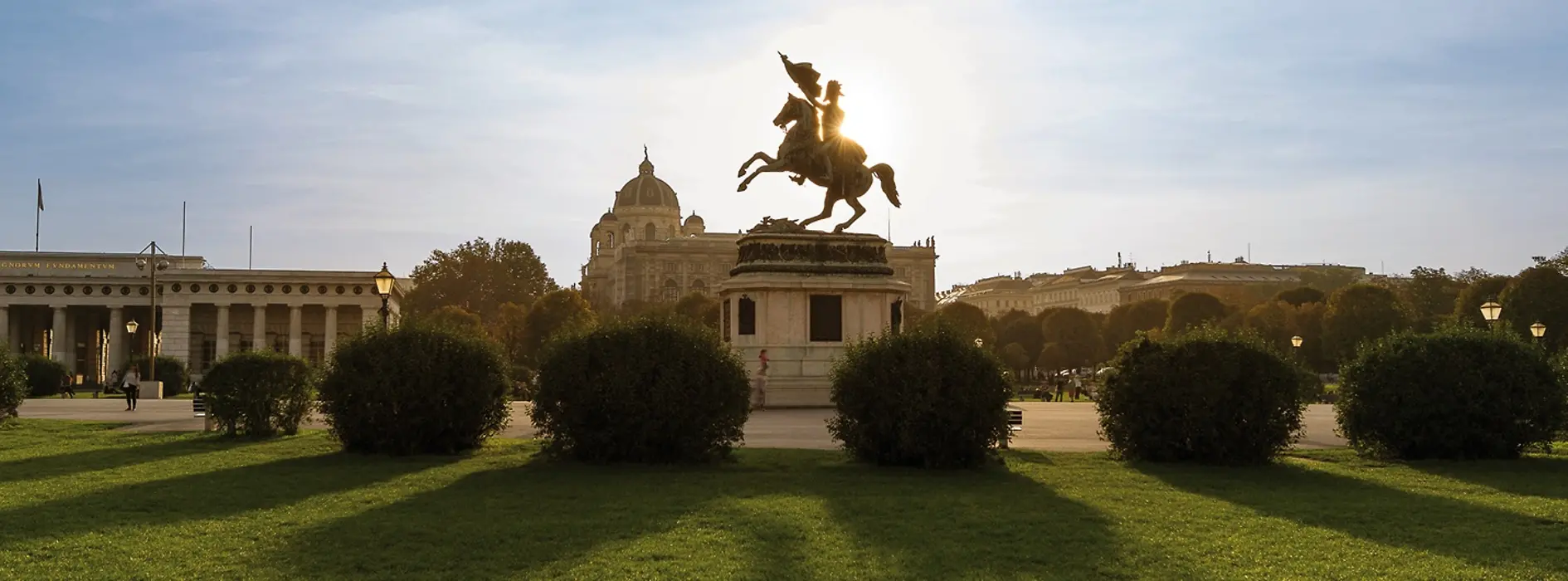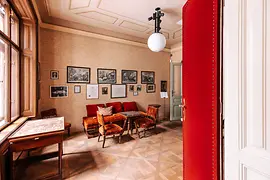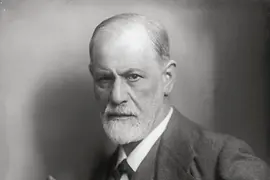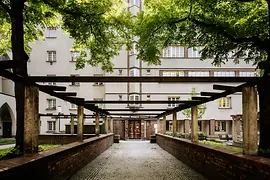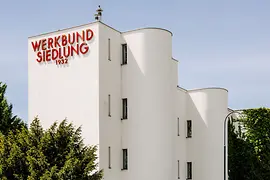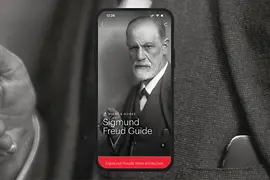An Inspiring Metropolis: Vienna, the City of Ideas
Richard Cockett, acclaimed historian, journalist (The Economist) and author from the UK, has written an entire book about groundbreaking innovations from Vienna called "Vienna – How the City of Ideas Created the Modern World". Cockett addresses ideas that have left their mark on the Western world up to the present day. He argues that Vienna is one of the most important cradles of the modern world.
Viennese intellectual brilliance
This Viennese spirit of progress affected the fields of business and advertising as well as architecture, philosophy and medicine, but the way sexuality was viewed and visual means of communicating knowledge were also heavily influenced by brilliant minds from Vienna. Cockett’s book focuses on the period from 1900 to just before the outbreak of the Second World War. The book presents a collection of intellectual achievements with Viennese roots that spread all over the world.
From pedestrian zones to management theory
igmund Freud's psychoanalysis, which turned the world of psychology upside down, is one of the most famous and influential innovations from Vienna that Cockett examines. Yet it is the wealth and range of Viennese ideas in this 400-page work that impresses.
The Viennese Victor Gruen is credited as the father of modern shopping centers and pedestrian zones. The invention of market and motivational research as well as modern management theory also have strong links with Vienna. And most importantly, modern medicine is inextricably linked to Vienna. Even a small selection from Cockett’s list speaks volumes about Vienna as a creative hotspot:
- Psychoanalysis (Sigmund Freud)
- Discovery of blood groups (Karl Landsteiner)
- Analytical philosophy of language (Ludwig Wittgenstein)
- Modern shopping centers and pedestrian zones (Victor Gruen)
- Market and motivational research (Herta Herzog and Ernest Dichter)
- Game theory (Oskar Morgenstern)
- Critical rationalism (Karl Popper)
- Modern management theory (Peter Drucker)
- Pictorial statistics (Otto Neurath)
- Fitted kitchens (Margarete Schütte-Lihotzky)
- Modern social research (Paul Lazarsfeld and Maria Jahoda)
- Behavioral science (Konrad Lorenz)
- Sex hormone research (Eugen Steinach)
- Modern architecture (Richard Neutra)
Cockett also discusses in detail the achievements of the era of Red Vienna (1919 to 1934), in which a political utopia was turned into a living reality. This was a period during which social housing experienced a boom. 400 municipal buildings were constructed in Vienna and far-reaching reforms were implemented, from education to social services and healthcare. This was an era of reform that is still the subject of much debate all over the world today.
Expulsion of the intellectual elite
There is a tragic reason why ideas from Vienna spread around the world: after the Nazi regime seized power, Jewish intellectuals, who were often the driving force behind these ideas, were deliberately expelled from Austria and driven all over the world, resulting in a radical reduction in many scientific disciplines. Intellectual life was slow to recover after the Second World War.
Recent Nobel Prizes recipients with Viennese roots
However, Vienna has attracted a lot of attention as a hotbed of scientific research in recent years. The Austrian quantum physicist Anton Zeilinger, who completed his postdoctoral studies at the Vienna University of Technology (TU Wien) and was later a university professor and head of the Institute of Experimental Physics at the University of Vienna, was awarded the Nobel Prize in Physics in 2022 for his research in the field of quantum physics.
In 2023, the Austrian-Hungarian physicist Ferenc Kraus was also awarded the Nobel Prize in Physics. Like Zeilinger, Kraus, who has been Director at the Max Planck Institute of Quantum Optics in Munich since 2004, graduated from the Vienna University of Technology and worked there for many years as a professor of electrical engineering. The essential foundations for his Nobel Prize-winning research in the field of attosecond physics were laid in Vienna.
Important European university city
Today, Vienna is one of the foremost university cities in Europe. The university has around 200,000 students and a remarkably long-standing tradition. Vienna's largest university, the University of Vienna, has been in existence since 1365. There are now some 180 degree courses that students can study across Vienna.
In addition to the University of Vienna, other important higher education institutions include the Vienna University of Technology, the Medical University, the mdw (University of Music and Performing Arts Vienna), the campus of the Vienna University of Economics and Business, the University of Natural Resources and Life Sciences (Boku), the University of Veterinary Medicine, the University of Applied Arts and the Academy of Fine Arts. However, private universities such as the Central European University (CEU) and the Sigmund Freud Private University also enrich Vienna's educational landscape along with a number of universities of applied sciences.
Vienna, the city of research
Today, Vienna is also an important location when it comes to research and development. The research quota is 3.65% – one of the highest in Europe. The proportion of people employed in research and development is particularly high. Vienna ranks third in Europe in this respect. The number of companies in the city involved in the research sector has doubled in the last 15 years.
Explore the Vienna of Sigmund Freud
If you want to delve deep into Vienna's scientific history, then you have a special opportunity in the form of the Sigmund Freud Audio Guide. The audio guide is part of the official city guide app, ivie. Nine locations in Vienna that are closely associated with the founder of psychoanalysis await your visit. The birthplaces of psychoanalysis and the interpretation of dreams are included, as well as Freud’s favorite coffee house and the district where he grew up – from the city center to the Karmeliterviertel and up into Vienna's vineyards.
